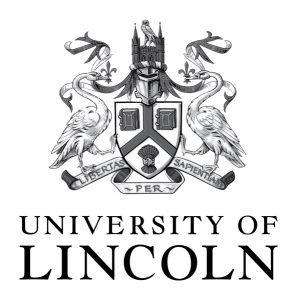The University of Lincoln is one of the fastest rising institutions in the UK. It has established an international reputation based on world-class research, high student satisfaction, and excellent graduate employment. Research funding within the University is obtained from a variety of external sources. During the past decade the University has been involved in a great number of projects funded by various European agencies and many others with national government, charity or industrial funding. These include the European Commission, the UK Research Councils, Government Departments (UK and Overseas), Charities and other similar organisations. Within the University there is significant involvement in funded European and international projects across a number of different Schools and departments, often involving collaboration across disciplines to deliver innovative, user-engaged results. Within the last year the University has secured multi-million funded projects for research and innovation, and in many cases it is playing a lead role or coordinating the management of the work.
The Lincoln Centre for Autonomous Systems Research (L-CAS), in particular, is currently a major research centre within the College of Science, comprising 15+ full-time academic staff, 10+ post-doctoral researchers, 25+ PhD students, 2 dedicated technicians, and a large number of associated or international visiting researchers. The Centre is organised internally into several research groups and projects, including human-centred robotics, agri-food technology and computational intelligence. L-CAS pursues several major lines of fundamental research into autonomous systems, including (i) human-centred mobile robotics, (ii) long-term autonomy and adaptation in changing environments, (iii) machine perception and sensor fusion, and (iv) bio-inspired embedded systems. These developments share a common need to robustly process and interpret large-volumes of real-world sensory data from different modalities in real time, as well as intelligent spatiotemporal decision-making on where and when to acquire these data. The Centre further specialises in systems integration, bringing together these technologies with other state-of-the-art supporting components, to tackle challenging real-world applications, especially in food and agriculture, security, assistive care, and intelligent transportation, particularly through external partnerships. Our joint facilities include dedicated robotics research labs, a demonstration farm, an experimental food factory, a fleet of diverse mobile and social robots, advanced compliant robotic manipulators, a swarm of microrobots, and state-of-the-art agricultural robots.
Key people
- Nicola Bellotto: principal investigator, work package leader (WP5)
- Marc Hanheide: senior researcher
- Sariah Mghames: senior researcher
- Luca Castri: PhD student
Role in the project
UoL will lead WP5 on Human-Robot Spatial Interaction, including tasks for context-aware modelling and causal reasoning. It will also contribute to other tasks in the same and related WPs, especially for human perception and motion prediction, where UoL has strong expertise from previous projects.

